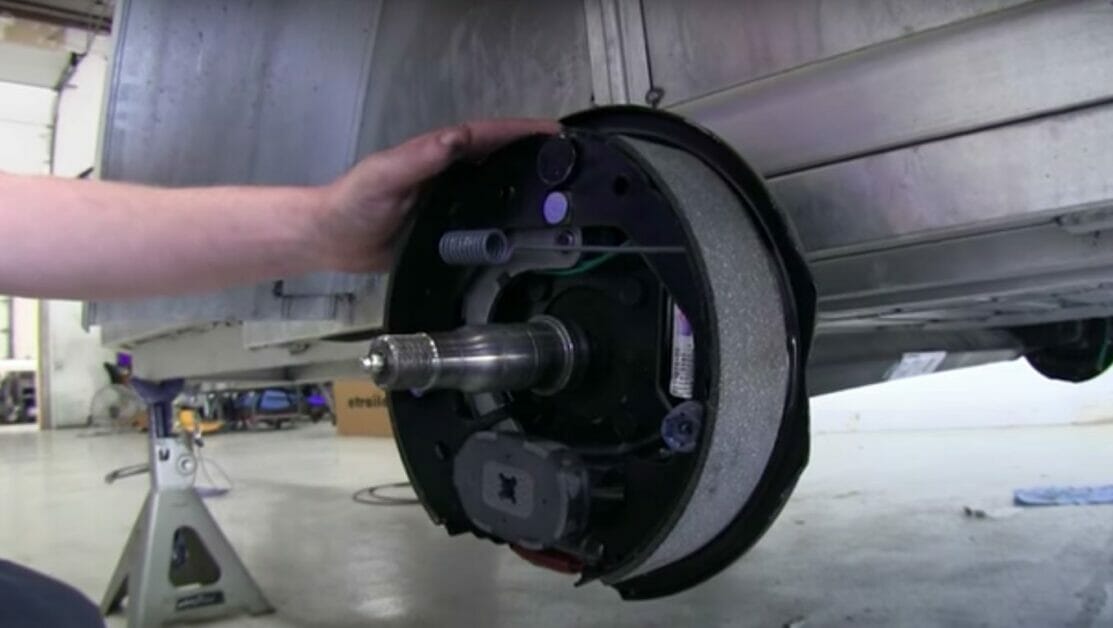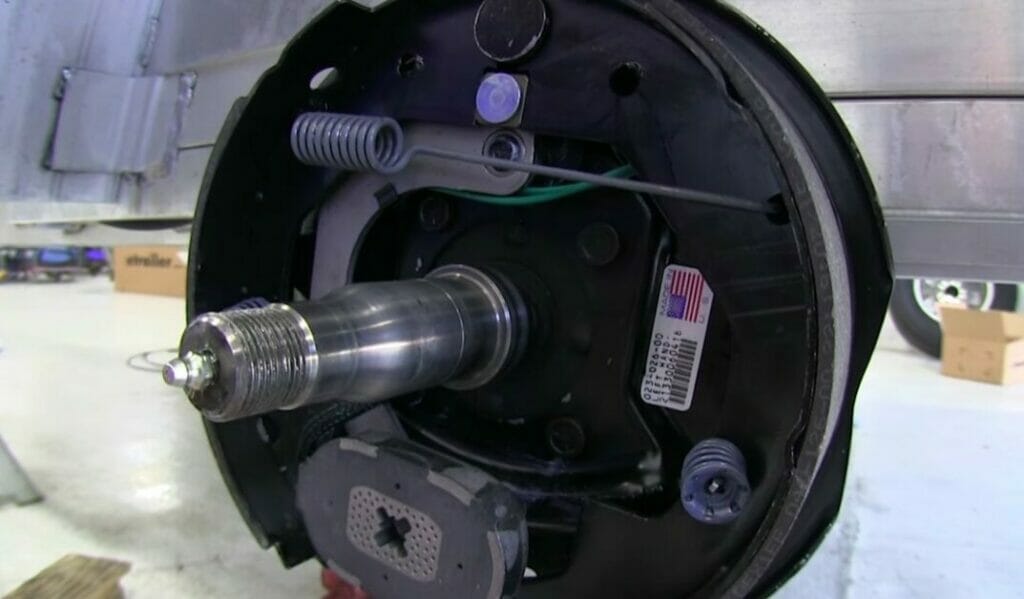What Gauge Wire for Trailer Brakes?

There’s a lot of debate regarding gauging wire sizes for trailer breaks; the last time I ordered a pair, I didn’t realize I had some aftermarket parts installed, which caused a lot of issues. So how do you know which size is best for you?
14 to 10 AWG wires are the standard sizes for trailer breaks. 14 AWG is the minimum size needed to power a standard trailer brake. However, it’s best to use 12 to 10 AWG ones for larger trailers to ensure enough power is supplied to the brakes.
I will go into more detail below.
Standard Gauge Wire Sizes for Trailer Electric Brakes

14 to 10 American wire gauge AWG are the standard sizes for trailer brakes.
You might be asking how are those standard sizes when there’s such a huge range. Trailer electric brakes are power-hungry devices that require a large, steady power source but don’t necessarily have the same power requirements. The gauge wire size for your trailer brakes largely depends on how much power the brakes need.
What’s the Most Compatible Wire Gauge for Your Trailer? ( Wiring Diagram)
14 AWG is your minimum size to power a standard trailer brake.
According to the National Electrical Code, a 14 AWG supplies 20 amps to power standard electric brakes. Moreover, it can steadily supply that power at around 30 degrees.
Note that the minimum size of 14 AWG will not work for all trailer brakes.
Wire Gauge and Amps for Trailer Brakes:
| Wire Gauge | Amps |
|---|---|
| 14 AWG | 20 |
| 12 AWG | 25 |
| 10 AWG | 30 |
As I mentioned, larger trailers need a more powerful brake controller installed. The 20 amps supplied by a 14 AWG wire may not be enough to sustain powerful trailer brakes and may lead to brake failure. If you’re not sure about the amp requirement of your brake, it’s best to skip 14 AWG wires and use larger-sized ones (wires with smaller AWG)
We generally recommend using 10 AWG wires for most trailer brakes.
Unlike brake lights or other devices in the trailer that uses auxiliary power, there are few negative effects to supplying high amounts of power to electric brakes. The electric brakes have an amp circuit breaker that prevents them from overloading if a smaller AWG is needed.
The main problem with using smaller AWG wires is the issue of whether they fit into your trailer.
Recommended Wire Gauge for Trailer Brakes based on Trailer Size:
| Trailer Size | Recommended Wire Gauge |
|---|---|
| Small (1-2 axles) | 14 AWG |
| Medium (3-4 axles) | 12 AWG |
| Large (5+ axles) | 10 AWG |
It would be best to consider whether those larger wires are compatible with your trailer wiring (look at the diagram in your manual) since 12 to 10 gauge sizes are heavy-duty trailer cables that are bulkier and longer than 14 AWG ones. The wires must fit comfortably with the interior battery lights, running trailer lights, and other components inside the engine compartment.
Besides, there’s no issue with using smaller AWG wires for trailer brakes since they are more durable than other devices, such as boat trailer wiring or lights.
| Wire Gauge | Compatible Components |
|---|---|
| 14 AWG | Standard electric brakes |
| 12 AWG | Larger electric brakes |
| 10 AWG | Heavy-duty electric brakes |
The right AWG size for your trailer brakes depends on its power requirements and the available space in your engine compartment.
If you’re certain about the brake’s power requirement, choose the gauge wire best suited for it. Otherwise, you can be cautious and use a heavy-duty trailer wire like the 10 AWG to guarantee the brake’s functionality.
References
Power Stream – Wire Gauge and Current Limits Including Skin Depth and Tensile Strenght – www.powerstream.com/Wire_Size.htm
etrailer.com. https://youtu.be/YK5h_K-9mCs
